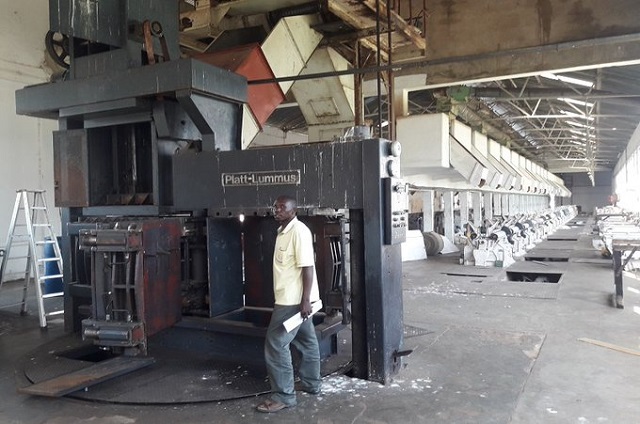
Mad Okollo, Uganda | THE INDEPENDENT | The lack of electricity and low supply of Cotton by farmers has rendered Rhino Camp Cotton Ginnery in Mad Okollo district idle.
The facility which is located in Rhino Camp Town Council has in the past been used to turn cotton into lint after removing the seeds and also supported Simsim (sesame) processing under the Management of Gulu Agricultural Development Company (GADCO).
Uganda Radio Network however understands that the Ginnery failed to operate the whole of last year after grappling with lack of power supply and shortfalls in quantities of cotton supplied by the farmers in the district and other parts of West Nile.
John Onenarach, the operations manager of Rhino Camp Cotton Ginnery explains that they have been running the facility using two diesel generators with fuel consumption of 600 litres per eight hours which is very costly. He says the Ginnery needs 500 kVA power supply to successfully run the operations. According to the Onenarach, the lack of operations at the ginnery is just temporary and they are working around to ensure they resume operations.
Shiraji Ondonga , the councilor representing Rhino Camp Town council who also doubles as the secretary for production marketing and natural resources for Madi Okollo district says that lack of operations at the Ginnery has rendered many people, especially the youths jobless at the moment.
He further noted that the Ginnery offered employment opportunities for youths in the neighbouring sub counties of Rigbo, Ogoko and Rhino Camp when it used to be operational.
Serafine Ayikobua, a cotton farmer in Rhino Camp Town council noted that most of the farmers in his area abandoned cotton growing due to the low price set by the Cotton Development Organisation over the past years.
“Several farmers here have left cotton growing due to the low price. Many of them now prefer to grow cassava or simsim, ” noted Ayikobua.
Meanwhile, another cotton farmer Dima Lameck has appealed to the government to set a better price for cotton and offer other incentives such as seeds and pesticides in order to woo back farmers to cultivate the cash crop.
“Let government ensure that the price of a kilo of cotton is set at a reasonable price such that farmers can resort to cultivating their garden,” he said.
Rhino Camp Ginnery was constructed by a Greek businessman known as Morgan Margah in 1927. The Greeks ran the facility up to 1957 when the West Nile cooperative union took over the management.
In the past ,the facility could annually handle about 21,000 bales each containing 185kg of cotton, which was turned into lint after removing the seeds. At the peak of its golden times in the 1950’s and 1960’s, the Ginnery directly employed 200 – 300 people and had thousands of farmers supplying cotton.
********
URN
 The Independent Uganda: You get the Truth we Pay the Price
The Independent Uganda: You get the Truth we Pay the Price



